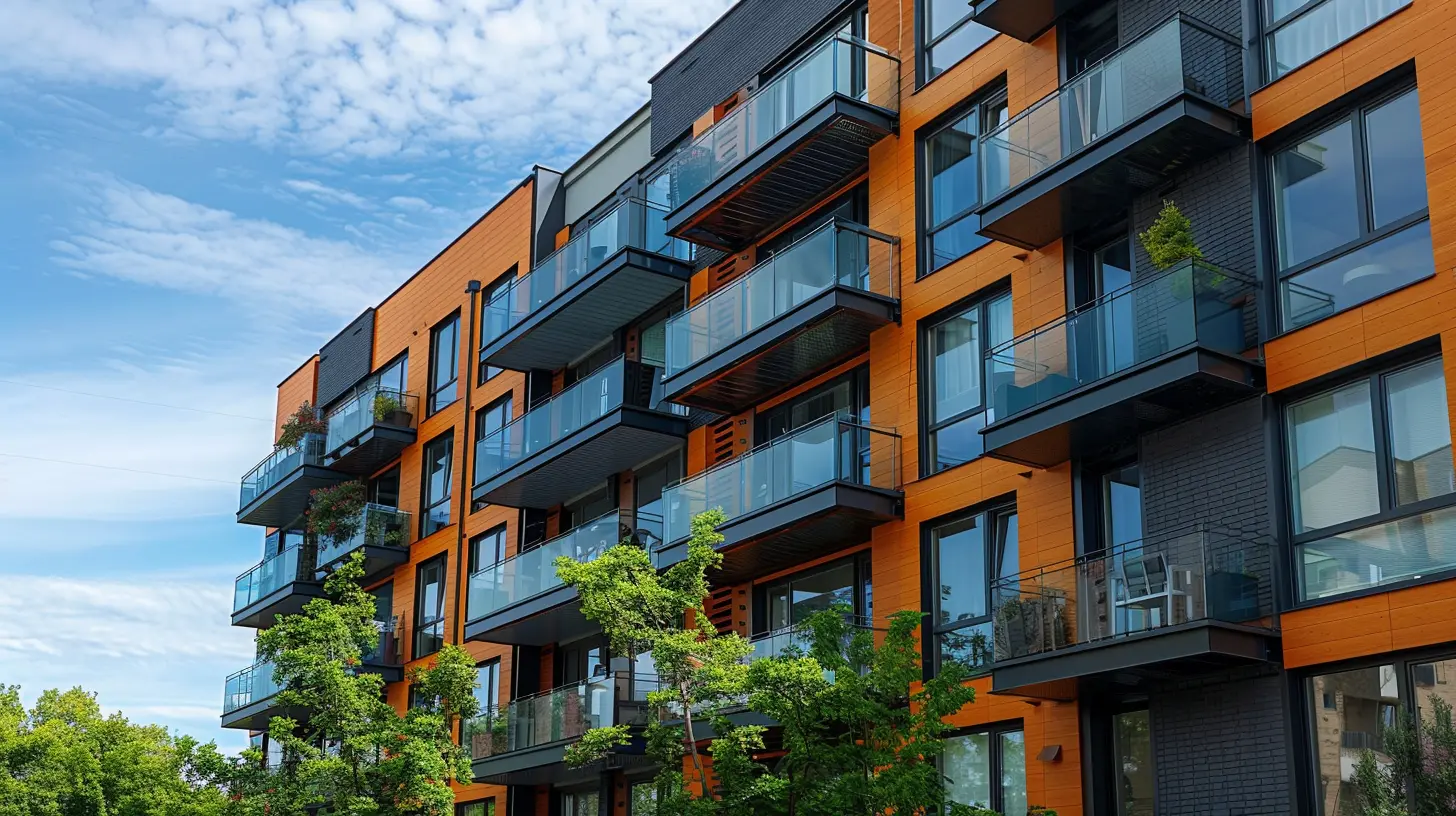How to Prepare Financially for Renting Property
25 June 2025
Renting a home is an exciting step—you’re securing a space of your own, gaining independence, and creating a comfortable living environment. But let’s be real: the financial side of things can be a bit intimidating.
Before you sign that lease, it's essential to have your financial ducks in a row. From budgeting like a pro to understanding hidden costs, getting financially prepared for renting will save you from stress down the road. This guide will walk you through everything you need to know to ensure your wallet is ready for the big move. 
1. Determine Your Budget Before You Fall in Love with a Place
It’s easy to scroll through listings and picture yourself in a trendy, high-rise apartment with floor-to-ceiling windows. But before you get too carried away, take a step back and check your budget.A good rule of thumb is that your rent should not exceed 30% of your monthly income. If you earn $4,000 per month, for example, your rent should stay around $1,200 or less. This ensures you still have enough left for other essentials like groceries, transportation, savings, and—let’s be honest—your occasional splurge on takeout.
How to Calculate Your Ideal Rent
1. Determine your monthly income (after taxes).2. Multiply by 0.30 to find your rent limit.
3. Compare rental prices in your area to see what fits within that range.
If rentals in your desired location exceed your budget, you may need to make adjustments—whether that’s finding a roommate, looking in a different neighborhood, or compromising on amenities. 
2. Save for the Upfront Costs
Renting comes with a hefty initial cost that often catches first-time renters off guard. Here’s what you should budget for:Security Deposit
Most landlords require one to two months' rent upfront as a security deposit. This means if your rent is $1,200, you may need to shell out $2,400 upfront ($1,200 for the first month + $1,200 for the deposit).First (and Sometimes Last) Month’s Rent
Many landlords require first and last month’s rent upon signing the lease, which means you could be paying significantly more than you expected upfront.Application Fees & Credit Checks
Some landlords or property management companies charge application fees (usually between $30-$50) to cover background and credit checks.Moving Expenses
Will you be renting a truck or hiring movers? Even a DIY move comes with costs—gas, packing supplies, and maybe even a pizza bribe for your friends who help out!Furniture & Essentials
Don’t forget you’ll need furniture, cookware, cleaning supplies, and small appliances. These can add up quickly, so it's best to budget ahead of time.Pro Tip: Before committing to a place, calculate the total upfront cost and ensure you have enough saved to cover it comfortably.

3. Check Your Credit Score (And Improve It If Needed)
Landlords take your credit score seriously—it’s a key indicator of whether you’ll pay rent on time. Most landlords look for a minimum credit score of 600-650, but higher scores give you better chances of approval (and sometimes better rental terms).How to Improve Your Credit Score
- Pay bills on time – late payments can drag your score down.- Reduce credit card debt – high balances hurt your credit utilization.
- Avoid opening new credit lines right before applying – too many inquiries can lower your score.
- Check your credit report for errors – you can request a free report from AnnualCreditReport.com.
If your score isn’t great, don’t panic. Some landlords accept co-signers or higher deposits if your financial situation isn’t perfect. 
4. Factor in Monthly Living Expenses
Rent is just one part of the picture—there are plenty of additional costs that come with renting a home. Make sure you’re considering:Utilities
- Electricity- Water & Sewer
- Gas
- Trash collection
Some rentals include certain utilities in the rent, while others don’t. Always ask what’s covered beforehand.
Internet & Cable
High-speed internet has basically become a necessity, but it can cost anywhere from $50-$100 per month, depending on your plan. If you bundle it with cable, expect to pay more.Renter’s Insurance
Renter’s insurance isn’t expensive (usually $15-$30 per month), but it's crucial in case of unexpected events like fire, theft, or water damage. Some landlords even require you to have it.Groceries and Household Items
Food, toiletries, and cleaning supplies add up quickly. Be realistic about how much you’ll spend each month.Transportation Costs
If you drive, factor in gas, parking fees, and car maintenance. If you rely on public transit, check monthly pass prices.Emergency Fund
It’s always wise to have at least 3-6 months’ worth of expenses saved up. Life happens—unexpected car repairs, medical bills, job changes—so having a cushion prevents you from scrambling.5. Prepare for Unexpected Costs
Life has a funny way of throwing financial surprises at you. When renting, you may encounter situations like:- Rent Increases: Many landlords raise rent annually. Be ready for slight increases.
- Repairs & Maintenance: While the landlord covers most major repairs, small fixes (like clogged drains or replacing light bulbs) might fall on you.
- Lease Break Fees: If you ever need to move before your lease is up, breaking a lease can be costly. Read your contract carefully.
Having a small "rainy day" fund for housing-related emergencies is a smart move.
6. Negotiate & Read the Lease Carefully
Before signing anything, read every detail of the lease agreement. Look for things like:✔ Lease duration (usually 12 months, but some offer flexible terms)
✔ Rent increase policies
✔ Pet policies and associated fees
✔ Maintenance responsibilities
✔ Security deposit refund conditions
Can You Negotiate Rent?
Yes! In some cases, landlords might be open to negotiating lower rent, especially if:- You’re signing a longer lease (like 18-24 months).
- The property has been vacant for a while.
- You offer to pay a few months upfront.
It never hurts to ask!
7. Set Up an Automated Payment System
Life gets busy, and the last thing you want is to accidentally miss a rent payment. Late fees can add up fast, and repeated late payments could even hurt your credit.The best way to stay on top of your rent? Set up automatic payments through your bank or rental portal. This ensures your rent is paid on time, every time.
If auto-pay isn’t an option, set calendar reminders a few days before rent is due.
Final Thoughts
Renting a home is a big financial commitment, but with the right preparation, it doesn’t have to be stressful. By budgeting wisely, saving for upfront costs, understanding your lease, and planning for the future, you’ll set yourself up for a smooth and financially stable renting experience.Take your time, crunch the numbers, and find a place that fits your budget and lifestyle. Happy renting!
all images in this post were generated using AI tools
Category:
Rental PropertiesAuthor:

Travis Lozano
Discussion
rate this article
2 comments
Thornefield Martinez
Understanding your budget and anticipating hidden costs are key to a smooth renting experience.
November 1, 2025 at 2:02 PM

Travis Lozano
Absolutely! Being aware of your budget and potential hidden costs can make all the difference in your renting journey. It's essential for financial stability and peace of mind.
Vance Alexander
Budget wisely to cover deposits, utilities, and moving costs.
June 29, 2025 at 4:51 AM

Travis Lozano
Absolutely! Proper budgeting for deposits, utilities, and moving costs is essential to ensure a smooth transition into your new rental.


